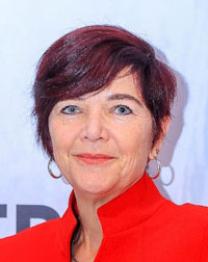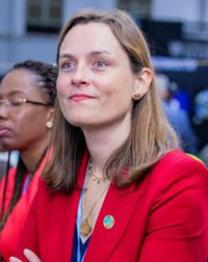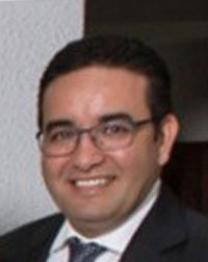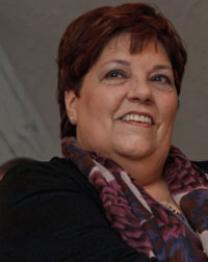This event will take place in French. No interpretation services will be provided.
This session will explore how international value chains based on biodiversity products play a crucial role in global economies and contribute to the fight against climate change and sustainable trade while strengthening their resilience to climate change.
Many economic entities depend on international value chains based on biodiversity, whether in the cosmetics, food or medicine sectors. They are often initiated by small local producers whose business ensures the livelihood of local communities and indigenous populations who are bearing the brunt of the impact of climate change. Very often these producers and local communities organize themselves through forms of the social and solidarity economy.
This panel will provide a platform for diverse stakeholders to engage in meaningful dialogue on the intersection of trade, biodiversity and climate change. Particular emphasis will be placed on social and solidarity economy entities and how they can support the resilience of international supply chains linked to biodiversity.
The session aims to:
- Present the concept of BioTrade and recall the issues: Assess the specific impacts of climate change on biodiversity value chains in sectors such as cosmetics, food and medicine, and introduce the concept of BioTrade.
- Build collaboration: Foster dialogue between local communities, governments, international organizations, civil society and the private sector to identify opportunities for collaboration to promote sustainable and resilient international value chains for biodiversity products and encourage public-private partnerships to share knowledge and resources.
- Identify political priorities and best practices: Develop achievable recommendations and cooperation opportunities to improve the climate resilience of international biodiversity value chains and in particular with social and solidarity economy entities, by promoting their capacity to resist crises better than traditional economic entities.
Agenda
Moderator
The session will be moderated by Chantal Line Carpentier, Head of Trade, Environment, Climate Change and Sustainable Development at UN Trade and Development (UNCTAD) and Co-Chair of the United Nations Inter-Agency Working Group for the Social and Solidarity Economy.
Panellists
- Cécile Martin-Phipps, Director of the Francophonie Institute for Sustainable Development
- Yasmin Ismail, Senior Policy Advisor, Trade, Climate and SDGs, Forum on Trade, Environment and SDGs (TESS)
- Fidèle Kouadio Kouacou, Climate Project Coordinator, Interprofessional Fund for Research and Agricultural Consulting, Abidjan, Abidjan, Ivory Coast
- Adil Youssfi, Member of the board of directors of the General Confederation of Moroccan Enterprises (CGEM), senior expert from the World Bank and UNDP on the green economy and climate finance
- Françoise Van de Ven, President, International Tropical Timber Technical Association (ATIBT)
Chantal Line Carpentier joined UN Trade and Development (UNCTAD)'s Division on International Trade and Commodities (DITC) in 2014, after serving as Chief, UNCTAD New York Office of the Secretary-General. She brings to the Branch over 25 years of work experience in international trade, and environmental and agro-economics.
Prior to working with UNCTAD, she supported the Commission on Sustainable Development and served as Major Groups (of non-State actors) coordinator for the UN Rio+20 Conference and the SDGs negotiations at the United Nations Department of Economic and Social Affairs (UNDESA). She also supported the sustainable consumption and production and sustainable agriculture negotiations.
As Head of the North American Free Trade Agreement Commission for Environmental Cooperations, she lead work on the nexus of environment, economy, and trade. She also served as Agro-environmental Policy Analyst for Winrock International, and post-Doctoral fellow/Brazil office manager for the International Food Policy Research Institute.
She has an extensive list of publications on sustainable agriculture, trade and environment, sustainable consumption and production, financing for sustainable development, stakeholder engagement, global value chains, micro, small and medium enterprises, and economic empowerment of women.
She obtained a PhD. in Agro-Environmental Economics from Virginia Technology and MSc. and BSc. from McGill University.
Cécile is an accomplished expert on environment and sustainable development and currently serving as the Director, Francophonie Institute for sustainable development (IFDD) in the Francophonie international Organization (OIF) leading OIF engagement in the Paris Agreement and 2030 Agenda follow-up and review, working closely with concerned units across the Organization and external partners.
Cécile joined OIF after serving 4 and half years in the International Solar Alliance as Director of Communication, Outreach and Partnerships in India, which lead to a deep understanding of the energy landscapes and challenges in India, North and West Africa. Prior to this Cécile worked for 10 years in the French Agency for Ecological Transition (ADEME) as senior programme manager in the International and Europe division. She has acted as lead on the climate change, sustainable tourism and sustainable city programmes.
Throughout her career, Cécile has taken leading roles in international forums, had conceptualized and let the development of regional and national strategies on environment, climate change and sustainable development.
She holds an Executive Education on Public Private Partnerships for Infrastructure from Harvard Kennedy School, a Certificate on Financing & Deploying Clean Energy from Yale School of Forestry and Environmental Studies & Yale School of Management, and a Master Degree in Public Administration & International Affairs from the French Institute of Political Sciences.
Yasmin Ismail est conseillère politique principale au Forum sur le commerce, l'environnement et les ODD (TESS) et experte indépendante en matière de commerce numérique.
Elle apporte au TESS 15 ans d'expérience professionnelle combinée dans la gestion de projets, les relations internationales et la recherche politique dans les domaines du commerce, du droit et du développement.
Ses recherches sur le commerce et l'environnement se sont concentrées sur les liens entre les régimes du commerce et du changement climatique et ont porté sur des questions telles que le traitement spécial et différencié et la responsabilité commune mais différenciée, l'aide au commerce et le financement du climat, ainsi que l'intégration des politiques commerciales dans les contributions déterminées au niveau national.
Francoise has a vast experience in the forest-timber sector, in business management, as well as in national associations, before her election as president of ATIBT.
During her nearly 20 years in Belgium and 25 years in Africa (Democratic Republic of Congo and Gabon), she built up an extensive international network and her knowledge of the countries of the Congo Basin, make her a contact person for stakeholders.
She is a member of the FAO Advisory Committee on Sustainable Forest-based Industries.






